Example Gratis Game Design Document
Game Design Document Template

Organize your video game plan in one place
A game design document is the single point of reference for your video game project. This template using Milanote is a non-linear version that is online and infinite.
Use this template to plan all aspects of your video game design, from initial idea through to development. Develop characters, gather inspiration for environments and moodboard different levels. Plan your marketing and promotion, and store references for SFX, VFX, interfaces and more—all in one place!
This template is part of the Game Designers collection.
- Set the vision
- Organize requirements
- Share with your team
- Gather feedback
- The perfect start for every game
How to use this template
Whether you're a game designer, artist, or programmer, follow this step-by-step guide to learn the modern way to create a Game Design Document in Milanote, a free tool used by top creatives.
1. Open the Game Design Document template
The Game Design Document template is the central hub for your project. It includes the key parts of every great game plan: Your ideas, moodboard, worldbuilding, level design, and character design. There are also checklists for your workflow so you have everything in one easy-to-access place.
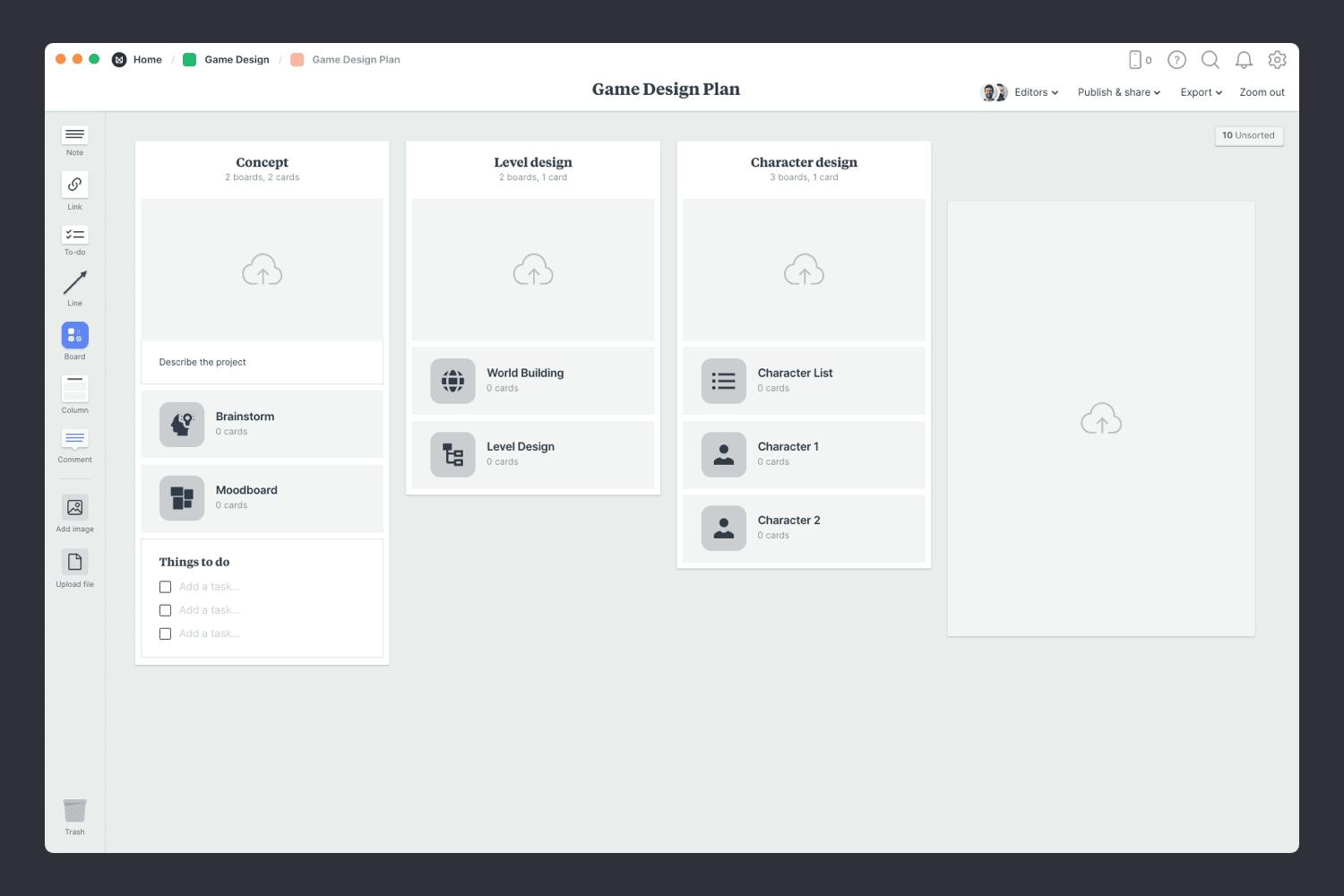
How to do this in Milanote
-
Create a new board for your project.
-
Choose the Game Design Document template.
2. Open the Brainstorming template
When a new game design project kicks off, your starting point is often just a rough concept or idea. So how do you transform that idea into something bigger? Brainstorming!
Brainstorming is a classic creative technique for generating new ideas quickly. You can use it to explore visual styles, dream up new characters, worlds, or even the levels you're planning.
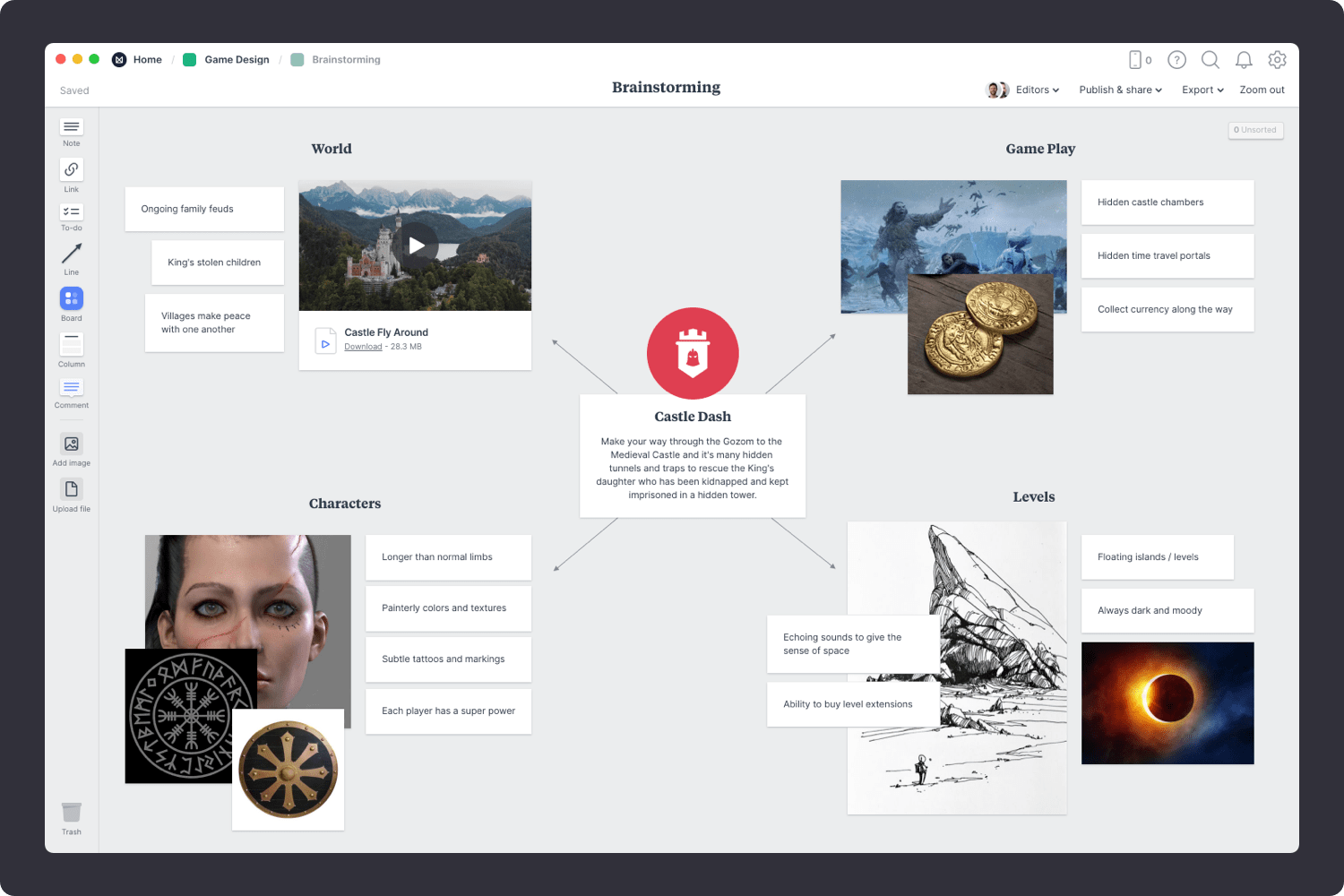
How to do this in Milanote
-
Open theBrainstorming board in your GDD.
-
Choose the Brainstorming template.
3. Run a brainstorming session
Start by writing the central concept for your project in the middle of the board. Next, spend 5 minutes adding ideas related to your concept.
Think about different parts of your game, animation styles you could use, characters, or even the history of your topic. Explore every thread until you fill the board. Finish by sorting the best ideas into groups. This gives you a strong foundation for your animation.
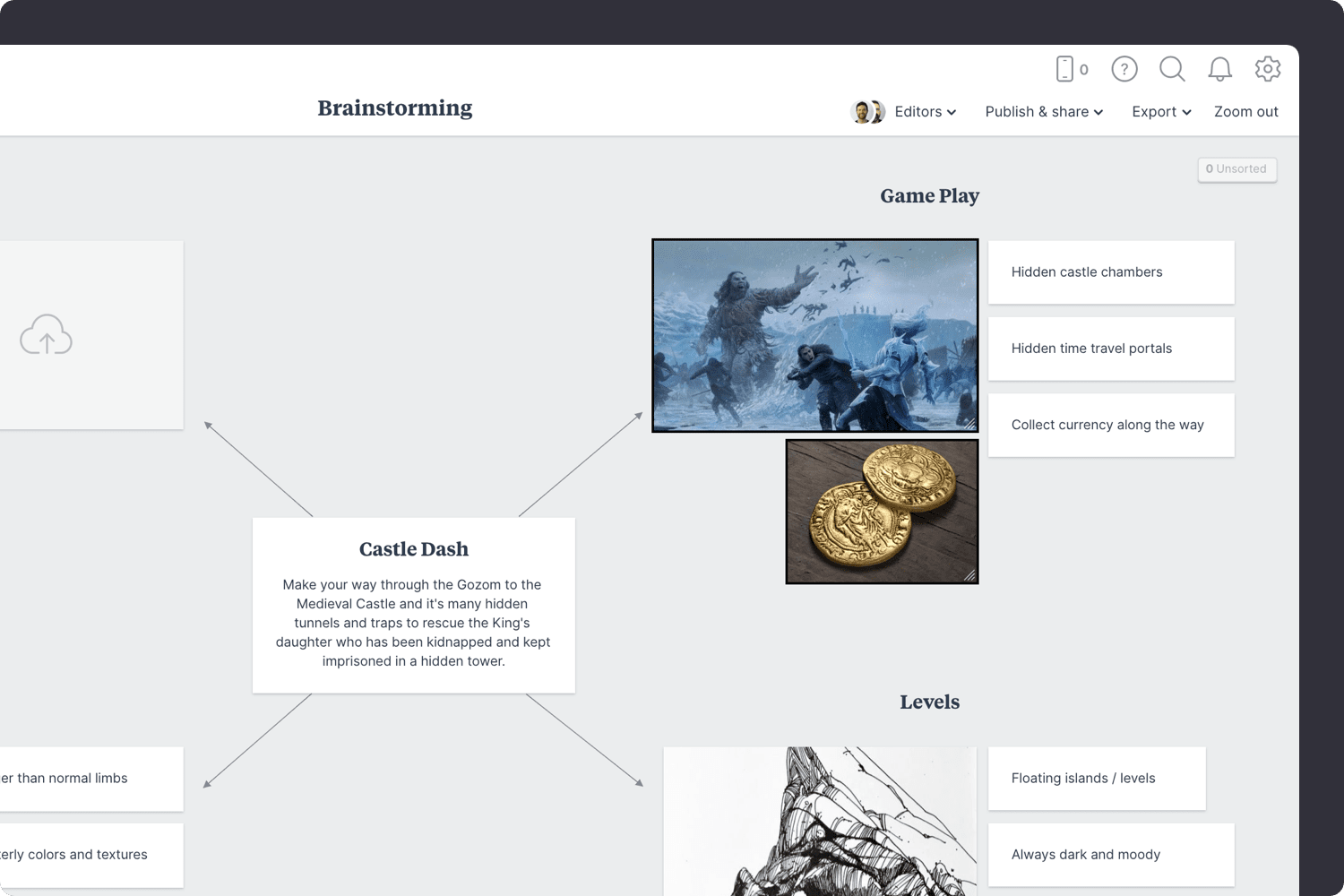
How to do this in Milanote
-
Add a note for each idea.
-
Upload images from your computer.
4. Open the moodboard template
During brainstorming, you imagined the different parts of your game. It's time to start exploring some visual directions with a moodboard. Moodboards can help you visualize any aspect of your project. You could focus on how you want the finished design to look. Or they could be centered around collecting references for characters or environments. You can create a moodboard for each of these separately or mix them all into one board.
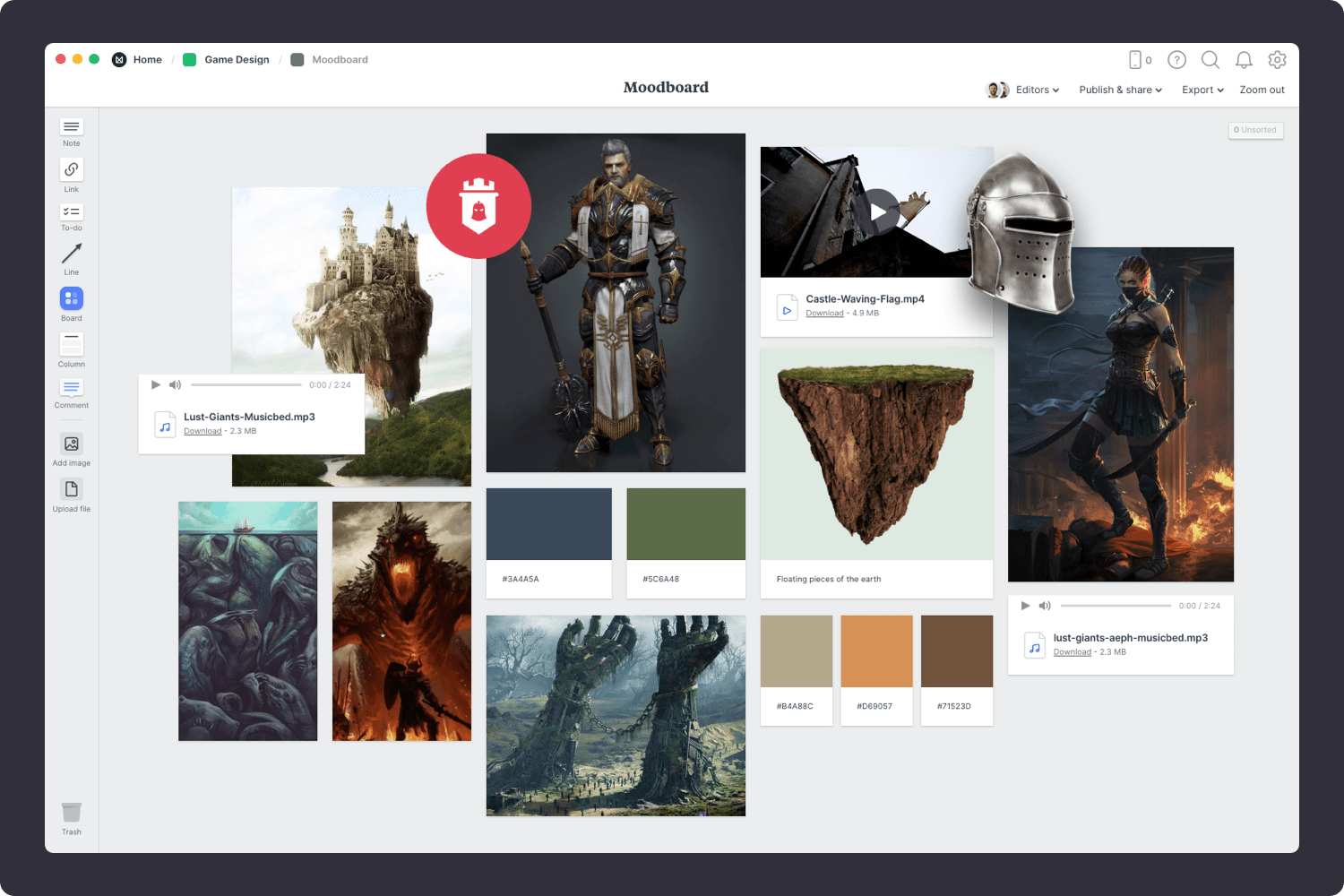
How to do this in Milanote
-
Open theMoodboard in your GDD.
-
Choose theGame Design Moodboard template.
5. Add inspiring images & references
Drag in images from your computer and drop them onto the image placeholders on your moodboard. Then, use the built-in image library to add inspirational references. Finally, move and crop your images to get the layout you need.
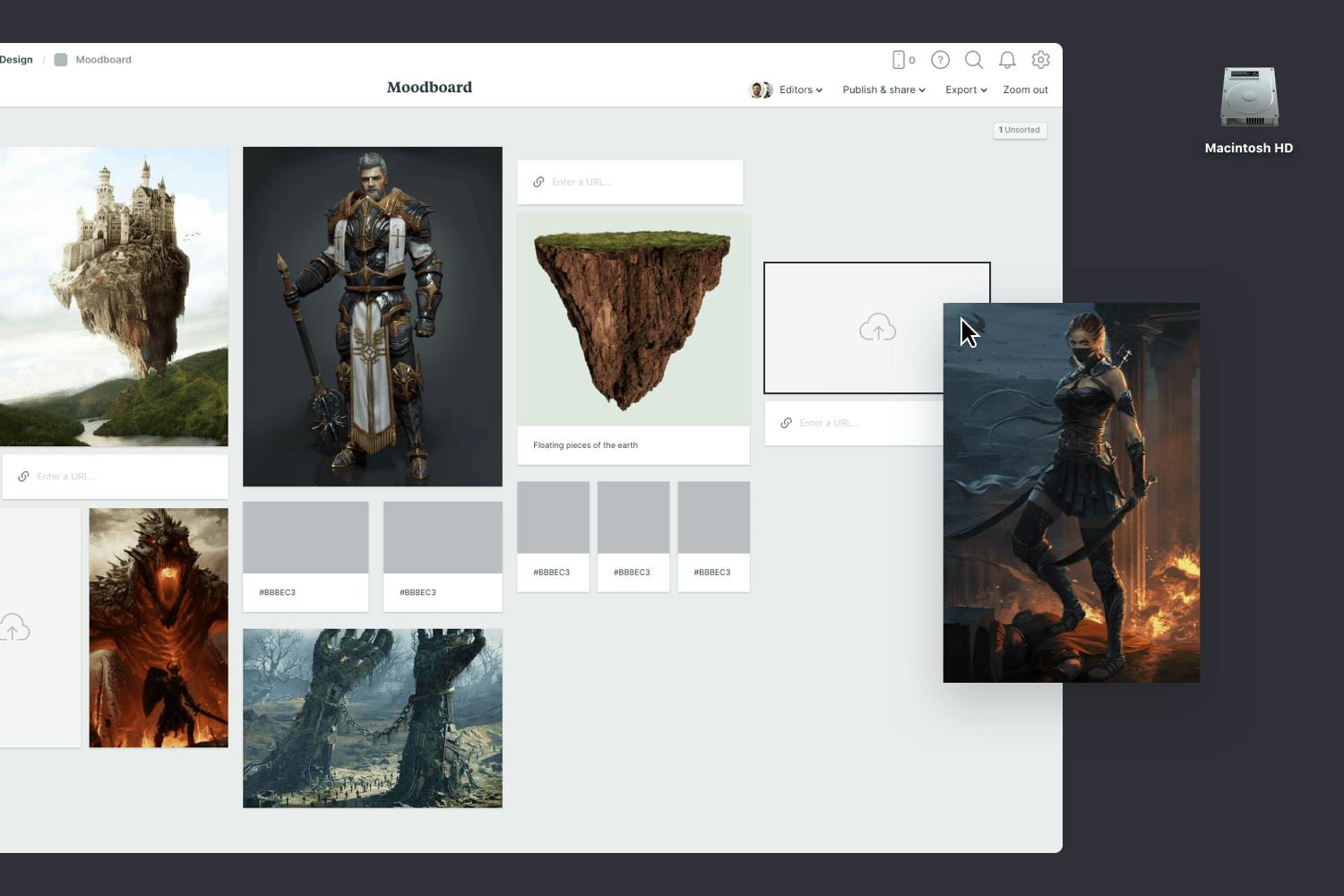
How to do this in Milanote
-
Drag files from your computer.
-
Use the built-in image library.
-
Crop images.
6. Open the Worldbuilding template
A crucial step in any game pre-production is deciding what the world or environment will be like. A world can be as expansive as a wide-open fantasy landscape, or as minimalistic as a single room. Here's where you let your imagination run wild and set the scene for your character and level design.
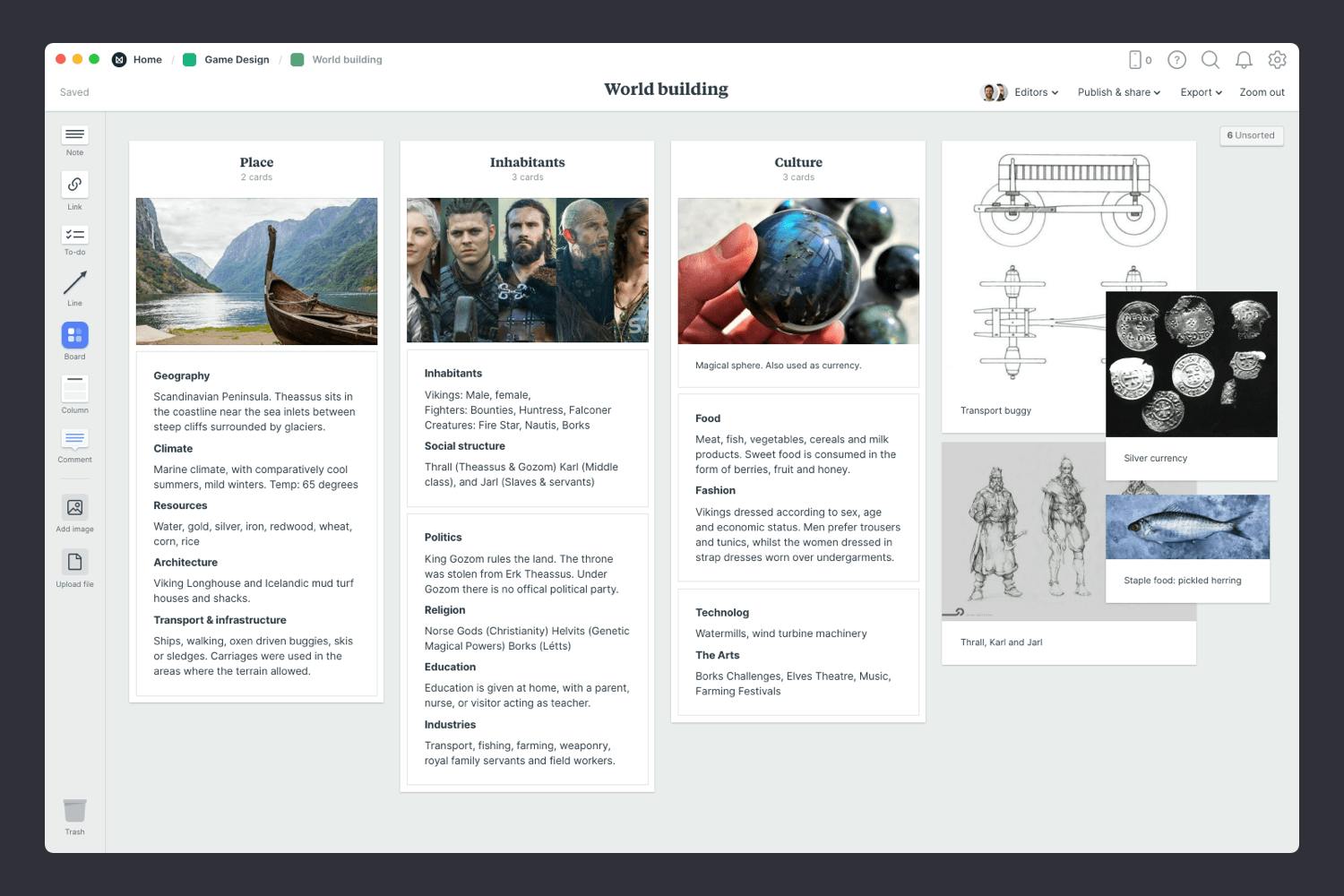
How to do this in Milanote
-
Open theWorldbuilding board in your GDD.
-
Choose the Worldbuilding template.
7. Fill in the Worldbuilding template
Start by thinking about the biggest concept in your game world—the environment. Where does your game take place? Next, add some ideas about the inhabitants and culture. Is your game set in a dystopian war-torn city with only soldiers and robots? If so, what's their purpose?
Finally, collect visual references that will help bring it to life. These can provide a handy starting point when thinking about character or level design.
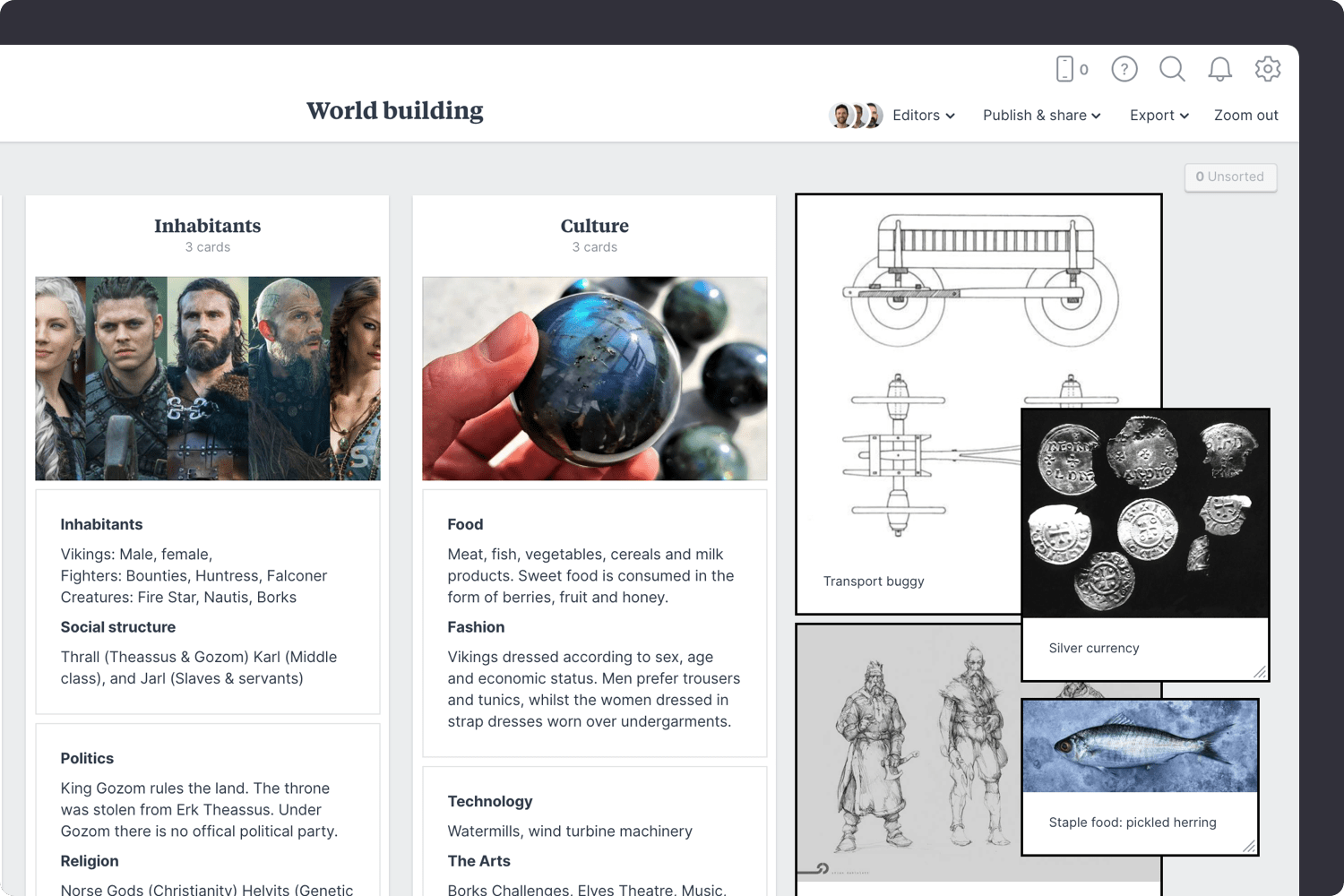
How to do this in Milanote
-
Add a notes to describe your world.
-
Upload files from your computer.
8. Open the Level design template
A great game level can make your players feel immensely excited and fully engaged in your game. From the level map, milestones, powerups, and obstacles they encounter along the way, every detail is planned during level design.
Level design is not only a great framework for you to invent something new. It's also a handy tool to help your team understand the size and scope of your game.
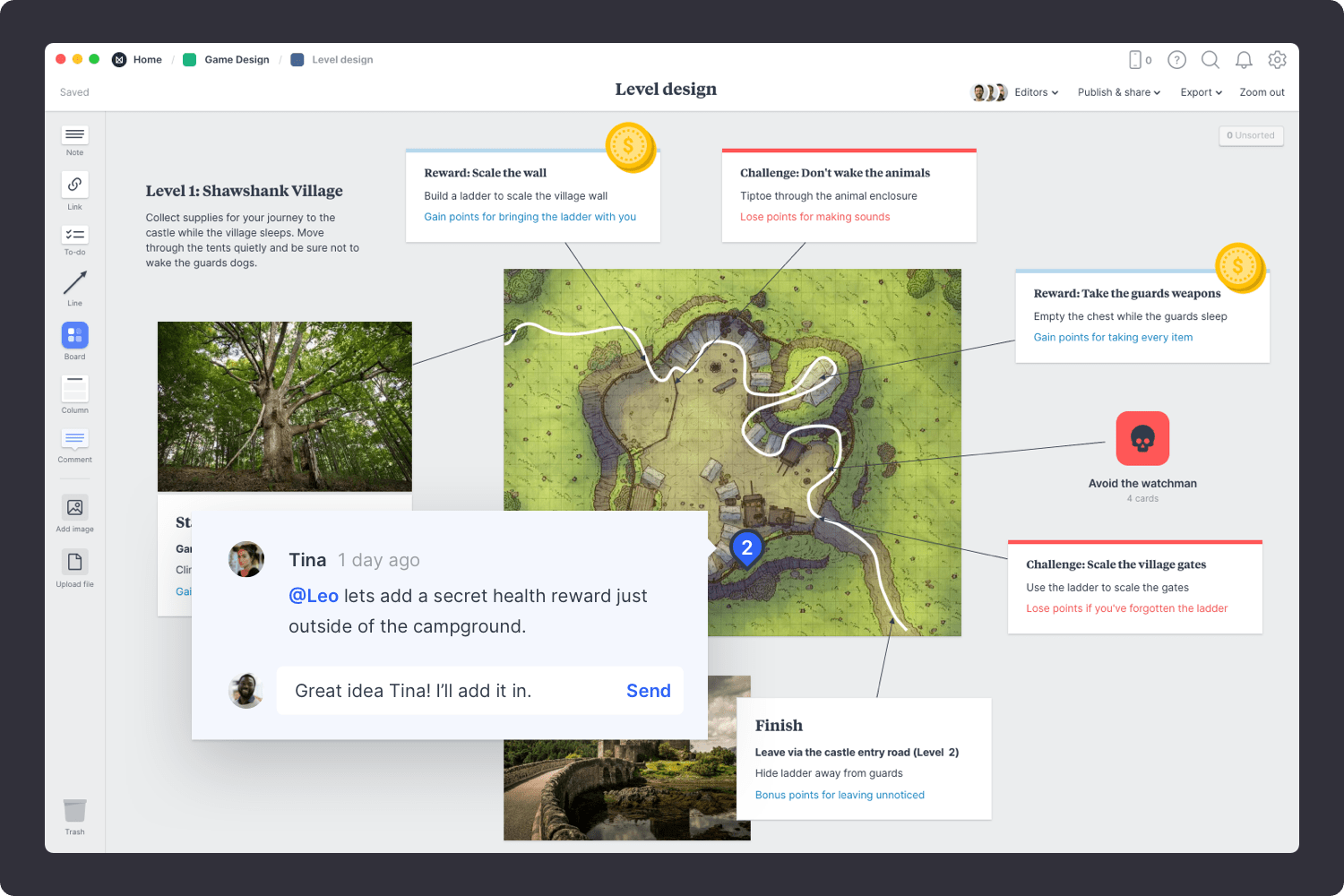
How to do this in Milanote
-
Open theLevel Design board in your GDD.
-
Choose the Level Design template.
9. Fill in the Level Design template
Add a simple description of your level, then start to create a 'top-down' map. Map out the ideal path you want the player to take and what you want them to encounter along the way. Where does your level start and how does a player complete it? Build challenges and rewards along the way to keep them engaged.
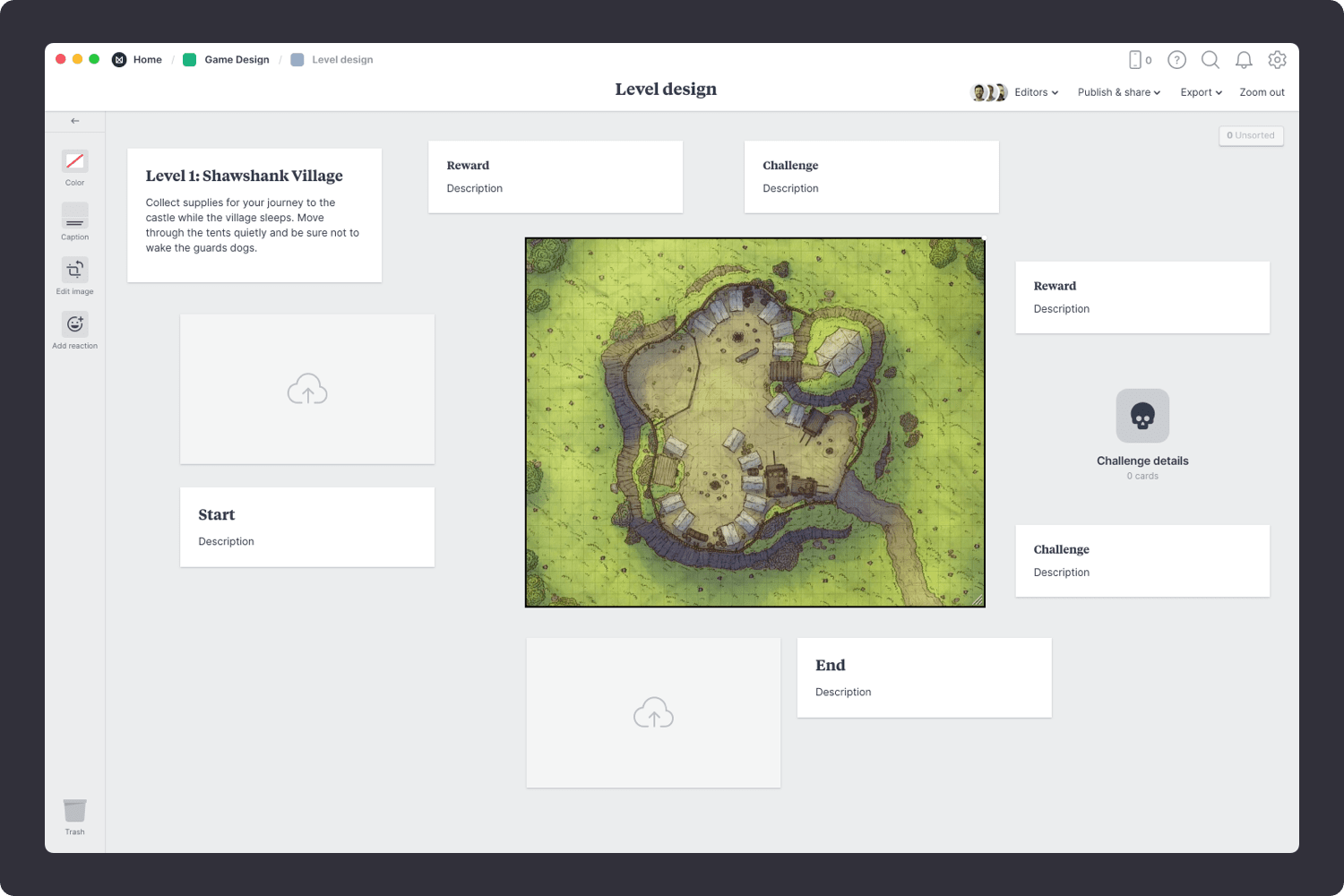
How to do this in Milanote
-
Add notes to describe the journey a player takes.
-
Add reference images from the built-in library.
10. Open the Character template
A great character feels like a natural part of your game's world, yet is unique and interesting with their own traits and personality. The character profile is a popular framework for developing unique characters. Game designers and writers use it to define a character's background, appearance, general strategy, and gameplay style.
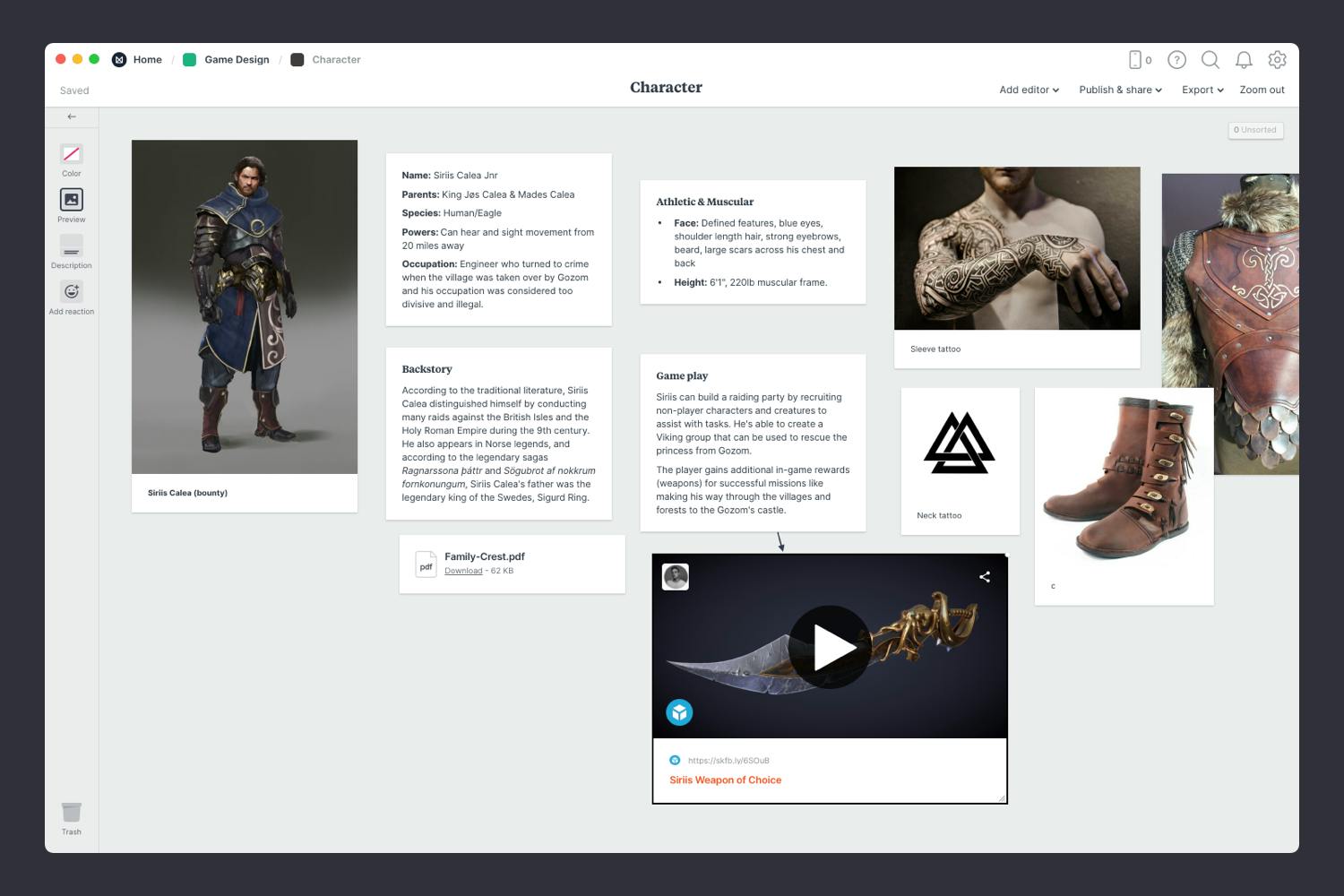
How to do this in Milanote
-
Open theCharacter board in your GDD.
-
Choose the Character Profile template.
11. Fill in the Character template
Just like people, characters are made up of their past experiences, goals, and aspirations. Craft a backstory to help make them more believable. Next, start to visualize the look of your character with sketches and reference imagery.
Finally, define their gameplay. Think about how they move, attack enemies and defend themselves. Consider their weight, speed, and style. Are they heavy or agile, how does their movement match their physical appearance?
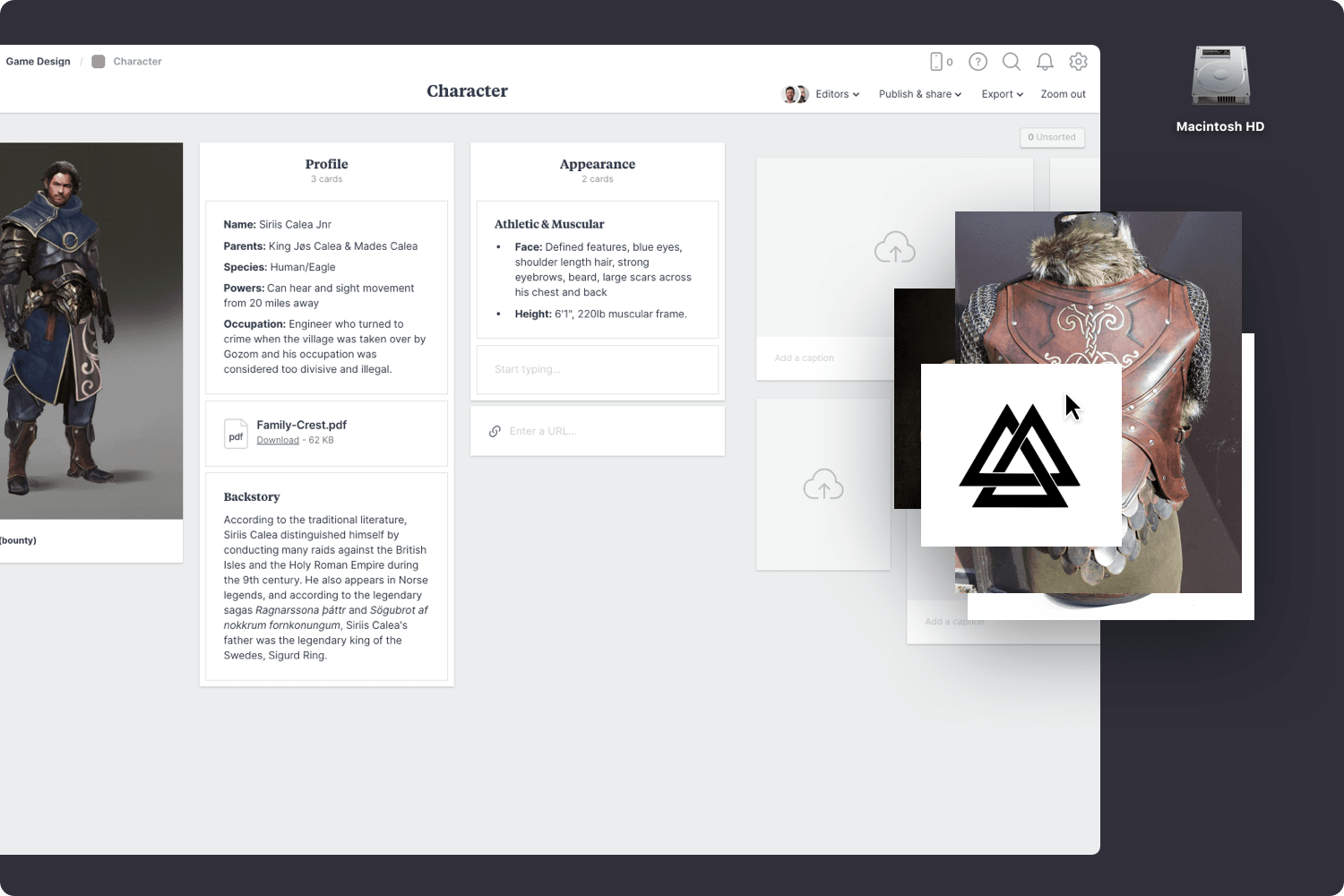
How to do this in Milanote
-
Add notes to describe your character and their gameplay.
-
Add reference images from the built-in library.
You're done!
Now that your Game Design Document is complete you (and your team) have a fully fleshed-out plan for your game. Remember, creativity and inspiration are constantly evolving so come back and add to it when inspiration strikes.

Start your Game
Milanote is where creative professionals organize their most important work.
Free with no time limit
"The evernote for creatives"
— Bryan Clark, The Next Web
Create your account
Example Gratis Game Design Document
Source: https://milanote.com/templates/game-design/game-design-document
Posted by: brennensours1947.blogspot.com

0 Response to "Example Gratis Game Design Document"
Post a Comment